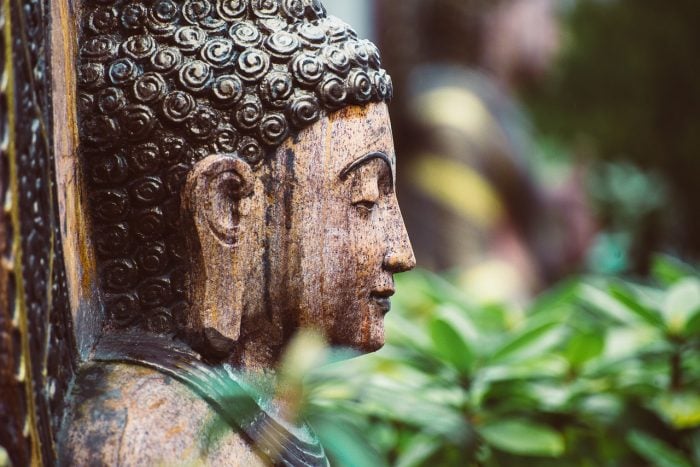{*Did you know you can write on Elephant? Here’s how—big changes: How to Write & Make Money or at least Be of Benefit on Elephant. ~ Waylon}
~
Can a Christian Become a Buddhist?
Buddhism has attracted people of various faiths who to broaden their understanding of this Eastern tradition, some merely out of curiosity, while others seriously considering adopting it as their religion.
A common question arises as to whether or not a Christian can adopt the Buddhist path while remaining Christian.
If we are Christian and consult our priest about embracing Buddhism it is not difficult to imagine the answer to be negative. But if we ask a Buddhist abbot the answer would be more nuanced, but, generally encouraging. Before going further, I would like to point out that it is not necessarily the case that Christians turn to Buddhism and not the other way around. There are well-known examples of Buddhists adopting Christianity, but their reasons are less than clear to me and therefore not explored in this brief essay.
In the West, Christianity is well-established and Buddhism relatively new, so curiosity often brings Christians to explore Buddhism. Often, although they like what they see, they fear being drawn into a head-on collision with their own faith. Buddhist Masters are accommodating to their insecurities and encourage them to investigate Buddhism, but they are quick to caution them to remain in their own faith. This has been the public position of His Holiness the Dalai Lama for decades, and most masters in the Tibetan tradition.
The distinction between Buddhism and Christianity is a distinction most of us are a long ways from realizing. Much of the distinction rests on the fact that Christianity believes in a Creator whereas Buddhism does not, and Buddhism believes in reincarnation, and Christians don’t, Christians believe in a soul, but Buddhists do not, and the list goes on. A Buddhist would encourage a Christian to maintain the viability of these distinctions until he either validates them through understanding, or abandons them through understanding.
Because Buddhism is a non-theistic religion it is not encumbered by belief in God or dis-belief in God. It does have a problem however with assuming the existence of God merely through scriptural citation. Conversely, for the Buddhist who does not believe in God, Buddhism would likewise challenge them to realize that “disbelief” beyond scriptural citation. For the Buddhist, actual experience is necessary, and faith and belief are only valued as an aid to reaching that experience, but of no soteriological value otherwise.
I have been in attendance several times when Christians have inquired of His Holiness the Dalai Lama about becoming Buddhists and abandoning their Christian faith. The Dalai Lama unfailingly discourages this approach. Rather, he encourages Christians to investigate Buddhism while remaining in their traditions until the time they grow out of it, if that time comes. All of the Buddhist meditation techniques and yogas having to do with bodily postures and breath mastery can be easily accommodated in a Christian framework. So, there is no contradiction. However, His Holiness points out that if one begins to experience the most subtle levels of understanding, such understanding will generally extend to realizations of emptiness and “dependent origination” that is not compatible with Christians notions of a Creator God. In fact, for Buddhist abbots, most of whom have studied the Bible—and I have discussed this point with many—they believe that the notion of a Creator God is presented as a steppingstone toward higher realization, a mere expedient device, if you will.
I might also add here that Buddhists themselves do not deny that the notion of a Creator is embedded in our consciousness, and in fact there are Buddhist schools that advocate a Creator, though it is generally referred to using different terminology. The Buddhist too is challenged to evolve his understanding beyond reifying the Buddha as a Creator God, a habit that is common to all Buddhists as much as it is for Christians to cling to their notion of God and Christ Consciousness.
At the end of the day, whether Christianity is supreme or Buddhism is, it will not be settled by what books tell us, but what we can claim through experience. This is often graphically demonstrated in debating courtyards throughout monasteries in India. Buddhist monks adopt opposing sides of the debate, one opponent adopting the “superior” Buddhist view, while another the “inferior” Christian view. It is revealed that the outcome depends on the debater’s understanding of the system he is representing. A monk assuming a well-understood “inferior” view can easily defeat a monk with a “superior” view, but which he understands poorly.
The most important thing for all of us is to develop our understanding, for it is understanding which dissolves the artificial boundaries we have created. Our enemy is our own ignorance, not each other.
~
 Share on bsky
Share on bsky


Read 3 comments and reply